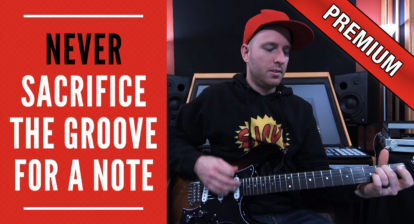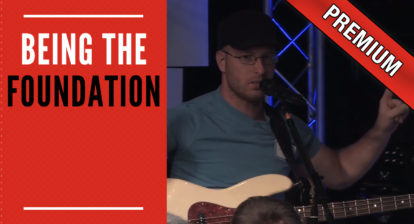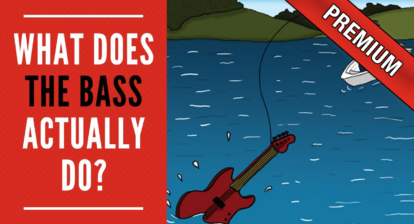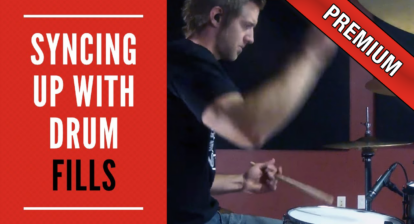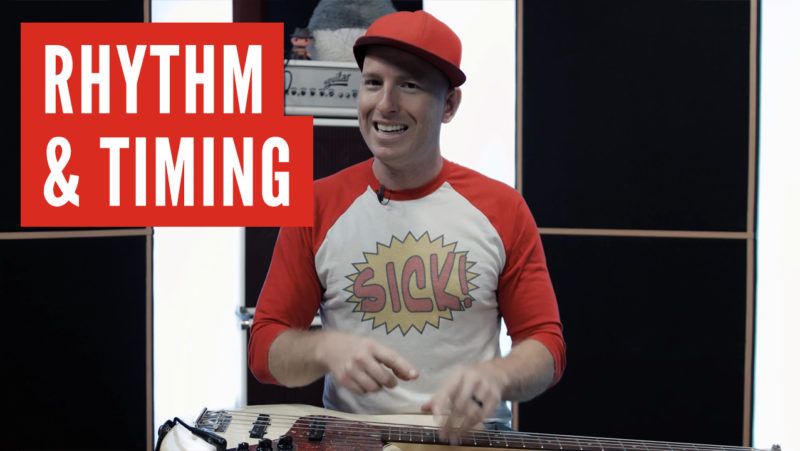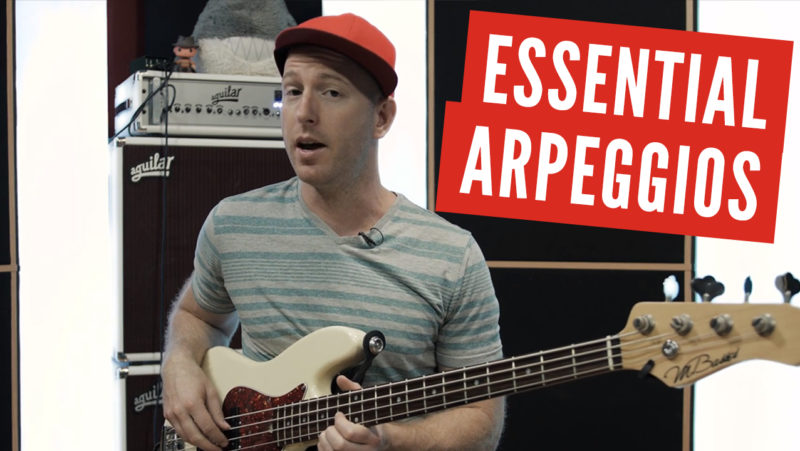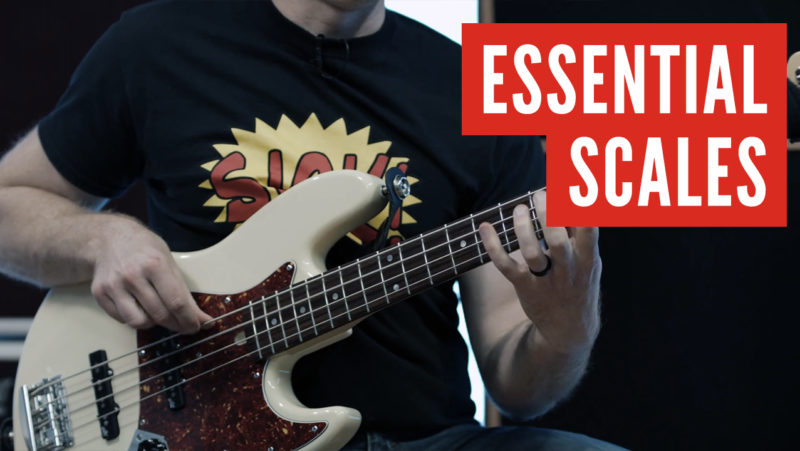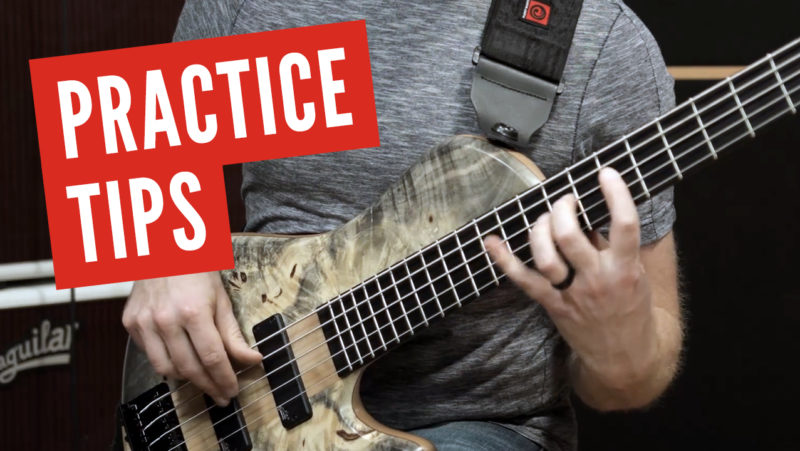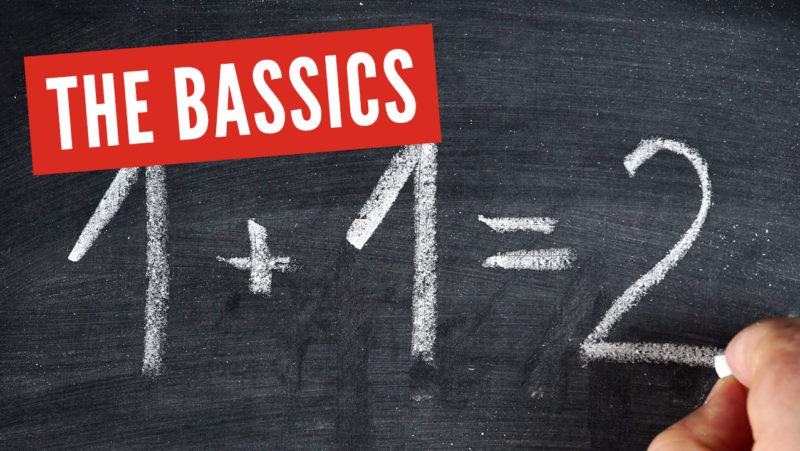Hi qbass600, thank you! I’ll do my best to help elaborate on this for you. First, let’s establish group-performed music as two scenarios: Orchestrated and Improvised Music.
Orchestrated Music
I agree with you, syncing up with drum fills like this is easiest to do in scenarios where you and the drummer know what you’ll be doing ahead of time (that’s pretty much what the word Orchestrated means, afterall). Obviously, this can be done in the studio when you are recording music because you’ll have plenty of time before takes to plan out what you want to play. Also, these days it is quite common for each element of the song to be recorded at separate times (and sometimes in separate cities, states or even countries!) so I’ll usually wait for the drums to be completed and comp’ed before recording my part – that way I can sync up with all of the fills perfectly. But how would this work live on a stage?
Well if you think about it, doing this live isn’t really any different from doing it in the studio. I mean, your singers have agreed to sing the same lyrics that they sang on the recording and your harmonic instruments have agreed to play the same chord progressions that they played on the recording, so there’s no reason to think that the kick patterns, grooves and drum fills would be any different. Just like we learned last week, you and your drummer can both agree to what the kick patterns will be and you can also agree to what the transition fills will sound like, doing your best to execute them the same way on stage as you did in the studio. The resulting sound will be a tight, intentional (and hireable!) rhythm section.
Improvised Music
It’s easy to think that the “rules” would be different here, given that there’s little or no time to do any communicating beforehand, but the “rules” can actually be the same here (assuming that’s what you’re trying to go for). The only difference here is that this communication typically happens in real time, not beforehand. I’ll give you some examples for how this type of thing works in an improvised or jam scenario:
- Understand that you probably won’t line up 100% of the time, because it’s hard to anticipate with 100% accuracy what someone else will do. But anything above 70% is considered passing, right? You may not get the whole thing, but try to get the majority of it.
- Hopefully the drummer (whether he’s your usual guy or even someone you’ve never played with before) is tasteful enough to play fills that are appropriate for the song. The melody, the chord progressions, the groove and the meter of the song each have very distinct phrasing for your composition, and hopefully your drummer is doing things that compliment this phrasing (and not the opposite!). This means that the options aren’t infinite. If you think about a TV show that allows its actors to improvise lines, it’s unlikely that one of them will turn himself into Darth Vader for a scene that doesn’t need a Star Wars character in it. Hopefully he’s using the scenes setting, tone and subject matter to improv the scene correctly.
- Keep in mind that as you continue to play with the same players over time, you’ll learn how they think. I can tell that my wife needs my help doing something before she even asks, based solely on the way that she says my name (we’ve been together for 13 years, mind you). I know exactly what chord my brother is going to play next based on the 3 notes he played before it (we’ve been playing music together for 27 years). I know what kind of fill Tim is going to play based on how he ramped up the previous bar (we’ve been backing up artists together for over 10 years). The more time you spend with people, the more familiar you’ll become with their voice, their habits and their actions.
- All of this is of course based on your ability to LISTEN! The more you pay attention to the people you play with, the more you’ll be able to anticipate their next move. Take notice of their dynamics, their facial expressions, when they rush, when they pull back, what they do when they screw up, how they cover their tracks… It becomes easier to notice these things over time, of course, but in the event that you’re playing with a brand new drummer that you’ve never played with before it becomes even more important. You have to do this kind of analyzation in a song or less; in other words a good bass player probably spends more time listening to the rest of his band than he/she does listening to him/herself. I know that I personally try to spend most of my time observing the other instruments in the ensemble and react to those observations naturally, rather than focusing on the actual reaction itself.
I hope this was helpful! Please don’t hesitate to ask if you have any more questions!

